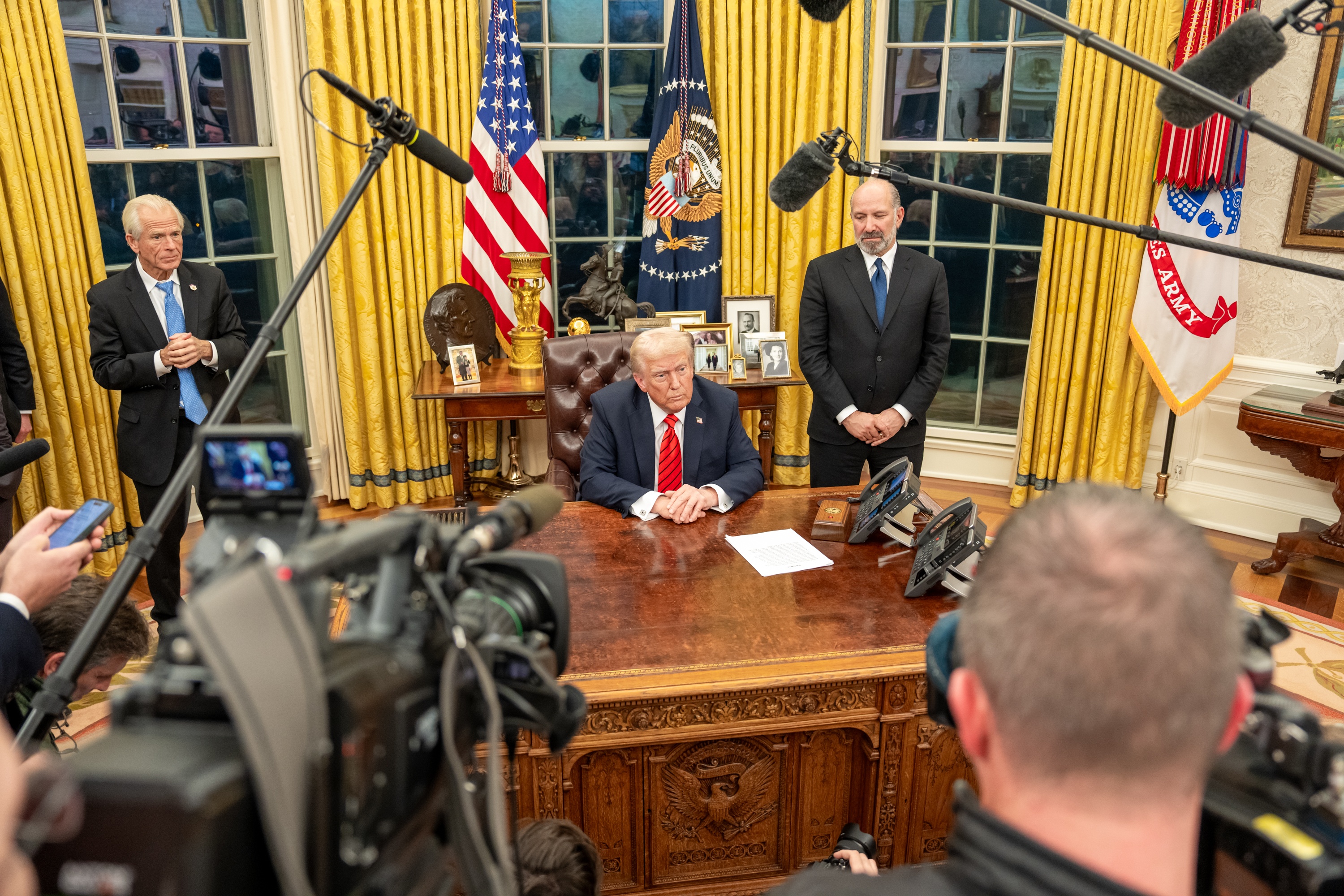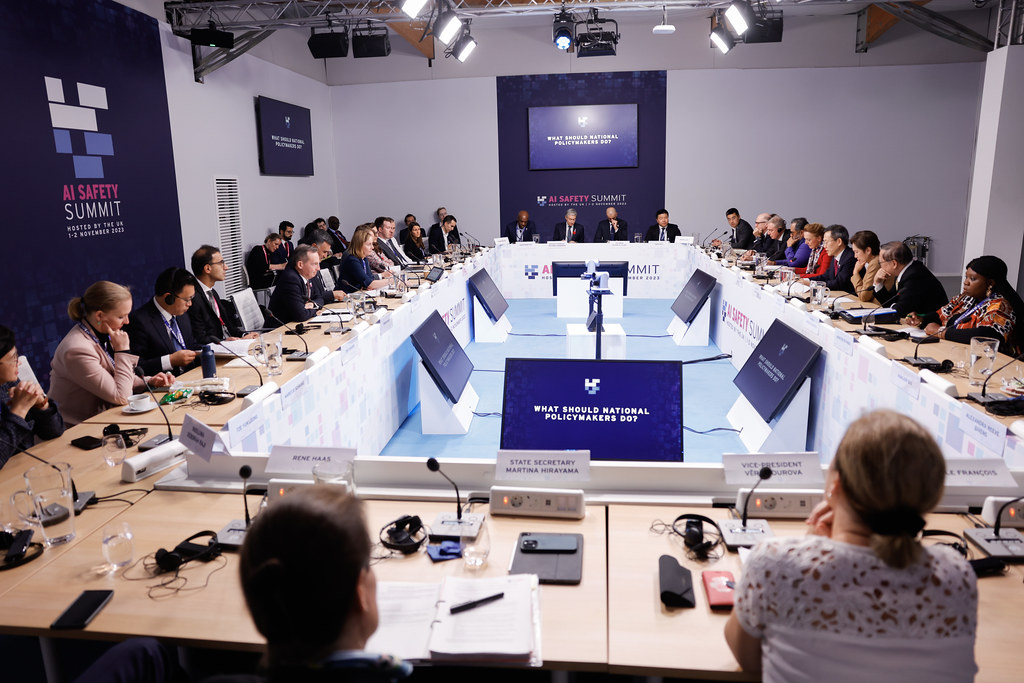Today's Headlines and Commentary
Yesterday, military leaders from countries involved in the U.S.-led campaign against the Islamic State met at Joint Base Andrews in Maryland. The event was led by Chairman of the Joint Chiefs of Staff General Martin Dempsey and included a visit from President Obama.
Published by The Lawfare Institute
in Cooperation With

Yesterday, military leaders from countries involved in the U.S.-led campaign against the Islamic State met at Joint Base Andrews in Maryland. The event was led by Chairman of the Joint Chiefs of Staff General Martin Dempsey and included a visit from President Obama. The Washington Post highlights the “serious [strategy] disagreements” among the coalition members.
Overnight Monday, the U.S.-led campaign conducted twenty-one airstrikes against Islamic State targets near the northern Syrian border-town of Kobani. According to the Associated Press, the assault was “designed to disrupt Islamic State reinforcements and resupply, and to prevent the extremist group’s fighters from massing combat power on the Kurdish-held sections of Kobani.”
A suicide car bombing in Baghdad yesterday claimed the lives of twenty-one people. Among the victims was Iraqi lawmaker Ahmed al-Khafaji. The Wall Street Journal reports that Islamic State militants have claimed credit for the attack.
Yesterday, U.S. Secretary of State John Kerry met in Paris with his Russian counterpart, Sergey Lavrov. According to the AP, the two agreed to increased cooperation, including intelligence sharing on the Islamic State.
The New York Times shares a long-form piece on U.S. soldiers’ encounters with chemical weapons during the Iraq War. Unfortunately, the territory where these “chemical weapons incidents [are] clustered” is now controlled by Islamic State militants.
As the United States begins to train and equip moderate Syrian rebel groups, the Times describes a classified Central Intelligence Agency study, which found that “many past attempts by the agency to arm foreign forces covertly had a minimal impact on the long-term outcome of a conflict.”
During a speech at the Association of the United States Army, Secretary of Homeland Security Jeh Johnson dismissed concerns that Islamic State militants were planning to use Ebola as a biological weapon against the U.S. The Hill quotes Secretary Johnson as saying, “I’ve seen no specific credible intelligence that [ISIS] is attempting to use any sort of disease or virus to attack our homeland.”
Secretary Kerry joins nuclear talks with Iran today, as high-level diplomats meet “to take stock of the status of the negotiations.” According to Reuters, Iranian Foreign Minister Mohammad Javad Zarif expects that discussions this week will “pave the way for a final deal.”
In the Saudi Arabian capital of Riyadh, a gunman killed a U.S. citizen and wounded another yesterday. Reuters has details on the story.
The AP provides a “country-by-country” examination of the rise of militia groups in the Middle East.
In Afghanistan yesterday, a car bombing in the eastern province of Khost and an insurgent ambush in Helmand province together resulted in a total of ten deaths. The AP describes the attacks.
The U.S. and Pakistani governments are reportedly cooperating on drone strikes in northwest Pakistan. McClatchy notes Pakistan’s silence on recent U.S. drone activity as proof of “tacit acceptance and, possibly, active cooperation between the countries.”
Ukrainian President Petro Poroshenko and his Russian counterpart Vladimir Putin are scheduled to meet in Italy this week to discuss natural gas supplies. According to Reuters, if the two leaders fail to reach an agreement, Ukraine may face “energy shortages” this winter.
Following recent border altercations, military officials from North and South Korea held talks for the first time in over three years. Reuters describes the meeting.
During a conference held by the Association of the United States Army, Army Chief of Staff General Raymond Odierno outlined the five ways in which the Army will change in reaction to evolving global challenges and budget caps. The National Journal examines Gen. Odierno’s statements.
Politico shares a series of short essays on the U.S. defense budget in the wake of President “Obama’s new war on terror.” Contributors include former Defense Secretary William S. Cohen, Ranking Member of the Senate Armed Services Committee Jim Inhofe (R-OK), and many more.
Nextgov examines the Federal Bureau of Investigation (FBI)’s Cyber’s Most Wanted list and explains why arresting any one individual is unlikely to have a significant impact on the “hacker economy,” which is “quite resilient.”
Ahmed Abu Khattala, a Libyan man allegedly behind the September 11, 2012 bombings of the U.S. diplomatic compound in Benghazi, was indicted yesterday on eighteen additional counts in connection to his involvement in the assault. According to the AP, “the new indictment includes multiple counts that make Abu Khattala eligible for the death penalty if convicted, including murder of an internationally protected person and killing a person during an armed attack on a federal facility.”
The Post reports that a second health worker who helped treat Thomas Eric Duncan, the first Ebola patient diagnosed in the U.S., tested positive for the deadly disease. According to the Texas Department of State Health Services, “The health-care worker reported a fever Tuesday and was immediately admitted at the hospital.”
Email the Roundup Team noteworthy law and security-related articles to include, and follow us on Twitter and Facebook for additional commentary on these issues. Sign up to receive Lawfare in your inbox. Visit our Events Calendar to learn about upcoming national security events, and check out relevant job openings on our Job Board.
Tara Hofbauer previously was an intern with Lawfare. She is majoring in Philosophy, Politics, and Economics at the University of Pennsylvania, with a minor in Legal Studies and History.




